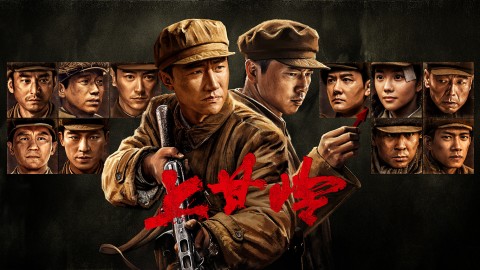Episode 3 recap: Mao Zedong's passionate speech at the labor union.
Mao Zedong, based on what he had heard and witnessed in Anyuan these past few days, felt that Anyuan was like a living hell. He told Zhu Shao to rest assured and discuss countermeasures with his colleagues, assuring them that he would return soon. As Mao Zedong was leaving, he held Zhu Shao's hand and made a request, urging him to ensure the survival of Ma Sao's two sons.
Zhu Shao agreed, and knowing that it was going to rain, he handed Mao Zedong an umbrella. Mao Zedong believed that they needed the umbrella more to shield them from the wind and rain. However, Zhu Shao felt that Mao Zedong's journey was even longer. Mao Zedong understood what he meant and knew that the road he had to take would be arduous and lengthy.
After embracing Zhu Shao, Mao Zedong departed to discuss the matter with He Shu Heng and others. They believed that Anyuan was a powder keg that needed to be ignited. Mao Zedong told them that not only did they need to set it on fire, but they also needed to do it accurately. They studied the railway lines in Anyuan and decided to start from there.
Chen Du Xiu saw Gao Jun Man rolling dumpling wrappers and wanted to give it a try. Gao Jun Man said that his handwriting skills were not suitable for such tasks, but Chen Du Xiu claimed that he had his own clever plan and took out an empty wine bottle to use as a weight. Huang Ai led the workers in launching a resistance, demanding that Huashi Company refund the money they had withheld.
Before the resistance could begin, officials arrived with guns, frightening the workers and forcing them to retreat. Mao Zedong was furious when he learned about it, as he believed that collusion between officials and businessmen would never allow their goals to be achieved. Yang Kaihui advised him that the road ahead was long and difficult, but with continued effort, they would eventually succeed. He Shu Heng happily informed Mao Zedong that Mr. Marin from the Communist International was coming. Mao Zedong was delighted and took Mr. Marin to enjoy Changsha's famous stinky tofu.
When Marin saw the stinky tofu, he was amazed and asked Mao Zedong if it was edible. Mao Zedong encouraged him to try it, explaining that it smelled bad but tasted delicious. Marin's translator, Zhang Tailei, informed Mao Zedong that they would be going to Guilin in a few days to meet Sun Yat-sen, as Mr. Marin was preparing for a major collaboration with Sun Yat-sen.
The members of the labor union began to argue, as they believed that someone should be held responsible for the injuries that occurred during the Huashi strike.
Huang Ai told them that even if it cost them their lives, they would continue the resistance to the end. Listening to their noisy arguments, Mao Zedong stood up and asked if he could say a few words. Mao Zedong told them that their labor union had been established for a week and asked why they had joined the union in the first place. They each began to state their own goals. Mao Zedong asked if they had achieved all of those goals now. He told them that the labor union was about to turn to the second page, transitioning from spontaneous economic struggles to spontaneous revolutionary struggles, forming a class character. He professed his belief in Marxism.
Mao Zedong told them that they needed to create a new world together. The people below thought he was joking; they only wanted to have enough food and clothing and didn't believe they had the capability to create a new world. Mao Zedong told them that there must be order, organization, and Marxism teaches that only through the unity of the entire class can long-term welfare and interests be achieved. They needed to form a class alliance, forge iron-like organization and discipline, and develop an invincible power so that the enemy could not defeat them and their future generations could live a good life.
Only Marxism could ensure the complete victory of their shouts and struggles. After listening to Mao Zedong's speech, they all found it very reasonable. Mao Zedong believed that the world belonged to the laborers, and he hoped that all laborers could unite. That night, Mao Zedong, He Shu Heng, and their group envisioned the future of the new China, filled with passion and enthusiasm.
In November 1921, the United States, Britain, France, Japan, and other countries held the so-called Washington Conference in Washington, lasting for more than two months, to divide the interests in the Far East. The Nine-Power Treaty passed at the conference made China the object of common exploitation by the imperialist powers. After the labor union's large-scale resistance, Manager Hua invited them to negotiate conditions at night. Jiang Xian Yun felt that being Mao Zedong's student was not easy, and Mao Zedong told him that he was planning to send him to Anyuan.



Comments(Episode 3)